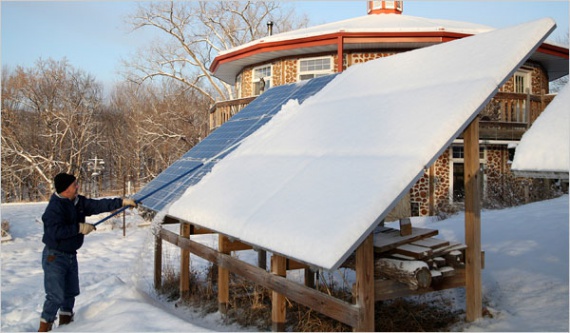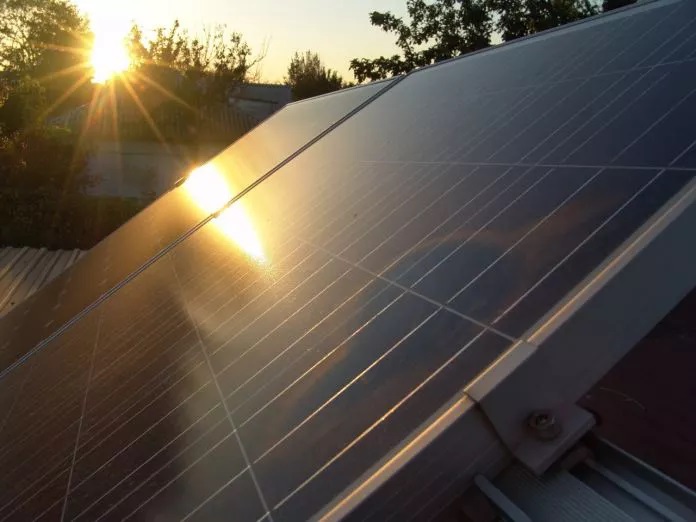Solar installation – efficiency on cloudy and hot days
When solar panels deviate from the STC, for example, they are located in a country with too hot a climate or a large cloud cover, efficiency decreases. When purchasing solar panels, we always receive a detailed report on the effectiveness of this panel, depending on the prevailing conditions. An important indicator is Pmax (maximum power point), which answers the question of what kind of efficiency loss is caused by a module temperature rising above 20 ° C.
As a rule, most of the energy from photovoltaic panels is obtained from May to July. The August heat and autumn-winter clouds affect the efficiency of photovoltaic panels.

A well-made solar panel installation will completely cover your annual energy consumption. It is worth investing in an installation that is slightly more than the average housework. For example, if your household consumes 4,000 kW, the recommended installation will produce 4,500 kW.
Orientation of photovoltaic panels
Solar panels work best when installed on a roof that faces south. Roofs facing east and west are also suitable for installation, especially when the roof slope is optimal.
Solar panels installed in the north are strongly discouraged, because in this case the loss of efficiency is huge.
Solar installation – shading
Solar panels produce electricity from the sun. If nearby trees, buildings, or chimneys cast shadows on photovoltaic panels, the probability of generating electricity will fall. It is assumed that the solar panels in the shade can lose up to 20% efficiency.
Due to the fact that the cells on the panel are connected to each other, casting shadows on some of them significantly weakens the operation of the entire device. In turn, one less efficient panel weakens the entire installation.
Ventilation and temperature of photovoltaic panels
Season has a huge impact on the efficiency of photovoltaic panels. In spring and summer, the days are longer, and the panels work for many hours during the day.

Despite this, solar panels work more efficiently on a sunny winter day when the temperature is 10 ° C than on a hot 30-degree summer day. The reason is simple – high temperatures cause the electronic components to heat up, which leads to a loss of their efficiency. This can be easily compared with a laptop that slows down when overheated.
When buying solar panels, it is advisable to choose panels with a low Pmax value. Another thing to pay attention to is the installation location – ventilation is a key factor, and its absence can lead to a loss of efficiency.
Roofs facing south, southwest, and southeast, with a gradient of 20 to 60 degrees, are ideal for solar panels. Photovoltaic panels achieve maximum efficiency on them.
Photovoltaic panels have high efficiency on a flat roof only if they use special frames that are ideal for modules. Panels placed horizontally on the ground receive about 90%, and on the rack 100% efficiency. There is absolutely no need to lose this energy, and a support structure should be used.


